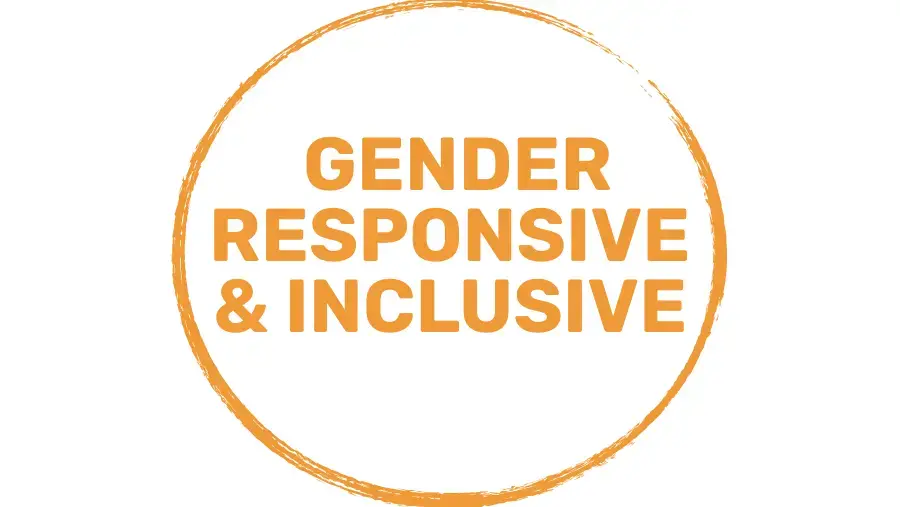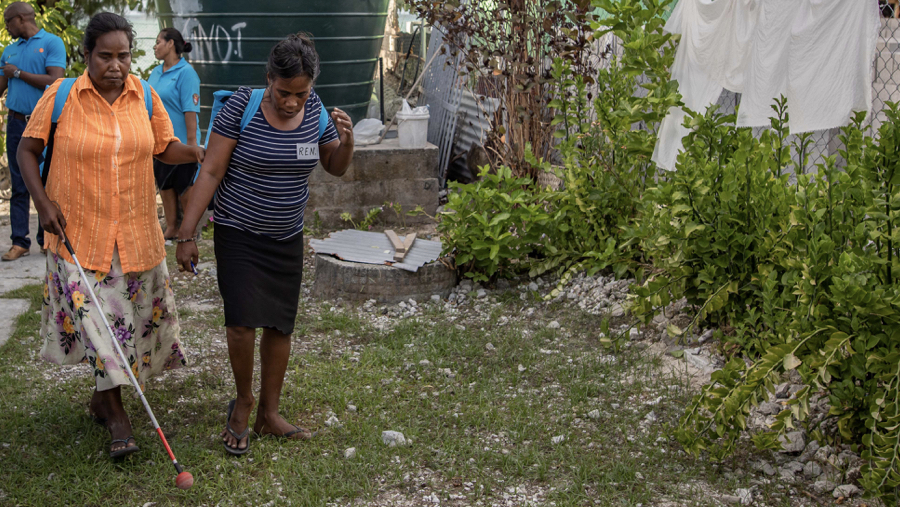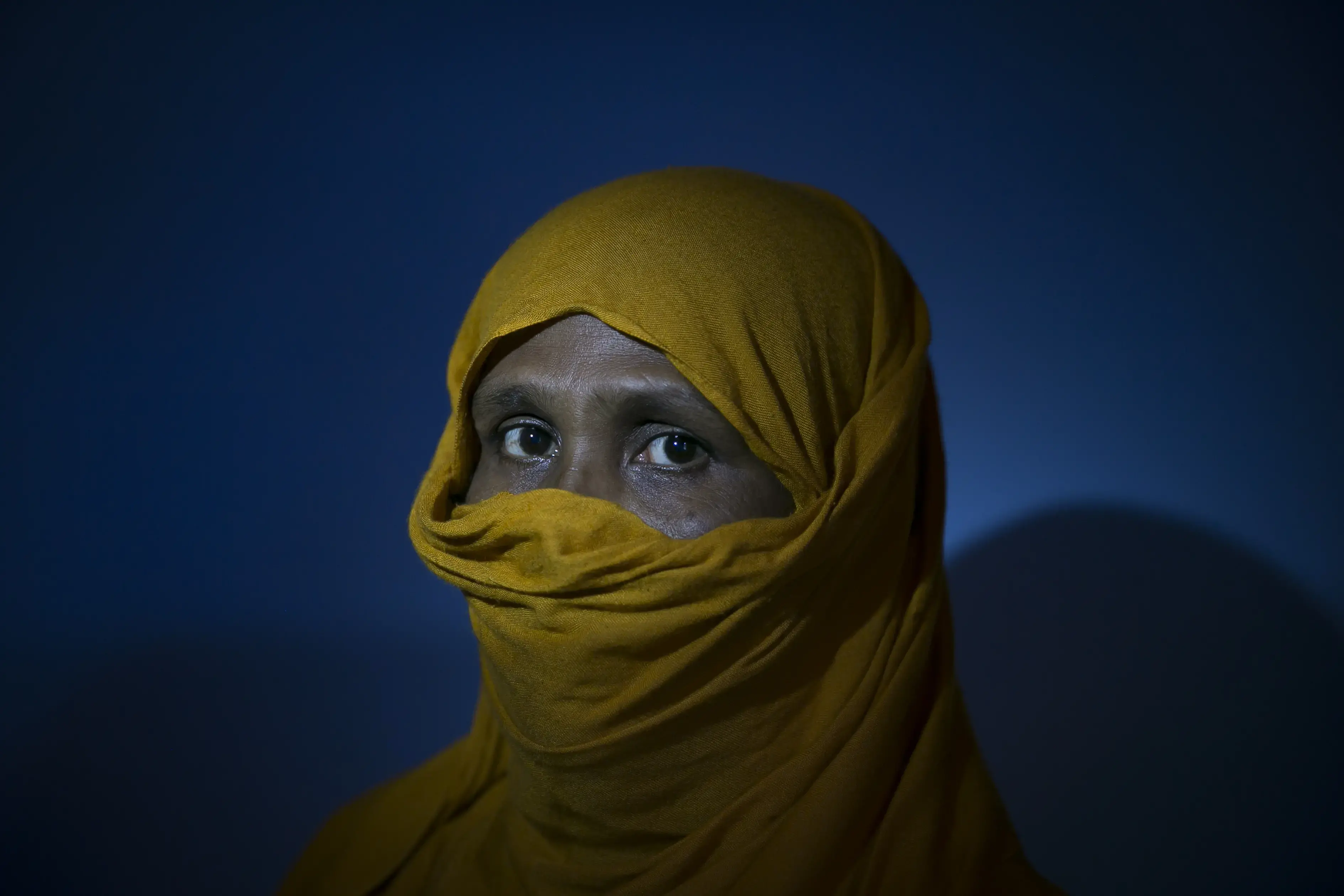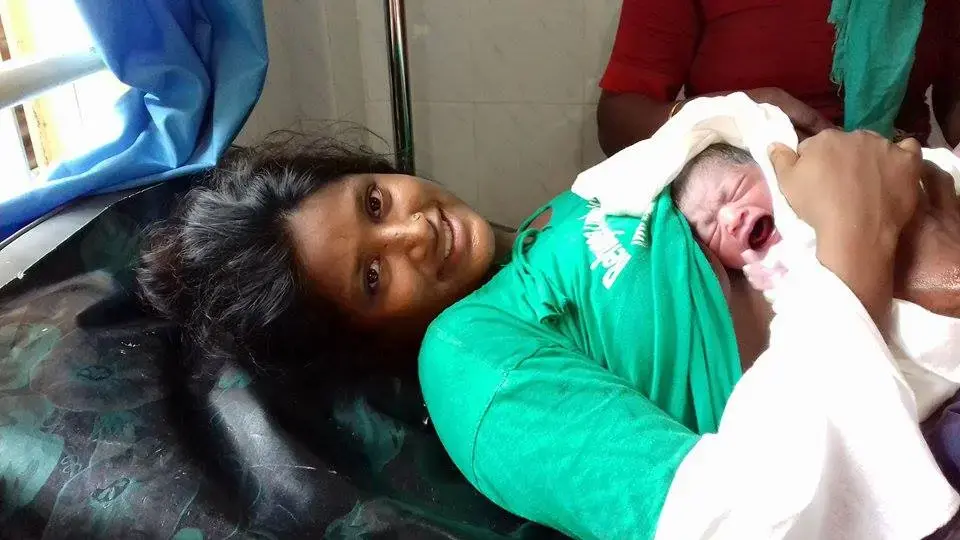Regional Prepositioning Initiative - Gender Responsive & Inclusive
In line with UNFPA’s commitment to ensuring that we are accountable to the affected populations that we serve, a key priority of the Regional Prepositioning Initiative is promoting the right to dignity, the right to protection, and the right to be heard and participate in decision making. UNFPA consults affected community members to tailor activities and interventions to meet their unique needs.
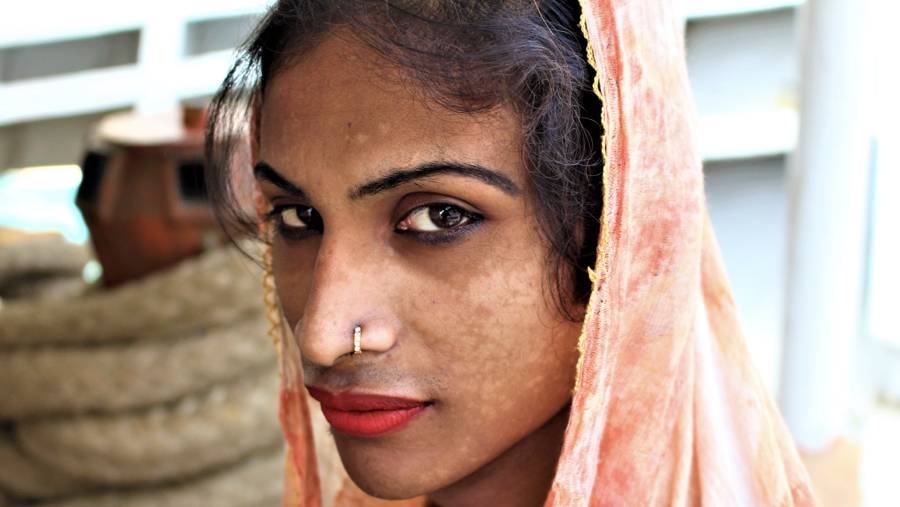
Shilpa Hijra is a transgender woman in Bangladesh.
Consultations have led to customised dignity kits for women and girls with disabilities in the Pacific, transgender communities in Bangladesh, older men and women in Indonesia, adolescent girls and boys in Indonesia, and adolescent girls in Myanmar and Bangladesh. Kits have also been customised for pregnant and new mothers in the Philippines, Sri Lanka and Indonesia. In order to meaningfully engage with communities in decision making and to build an environment of trust, UNFPA and partners use beneficiary feedback mechanisms to improve dignity kit contents and distribution strategies, by creating appropriate entry points for women and girls to safely raise concerns and receive response.
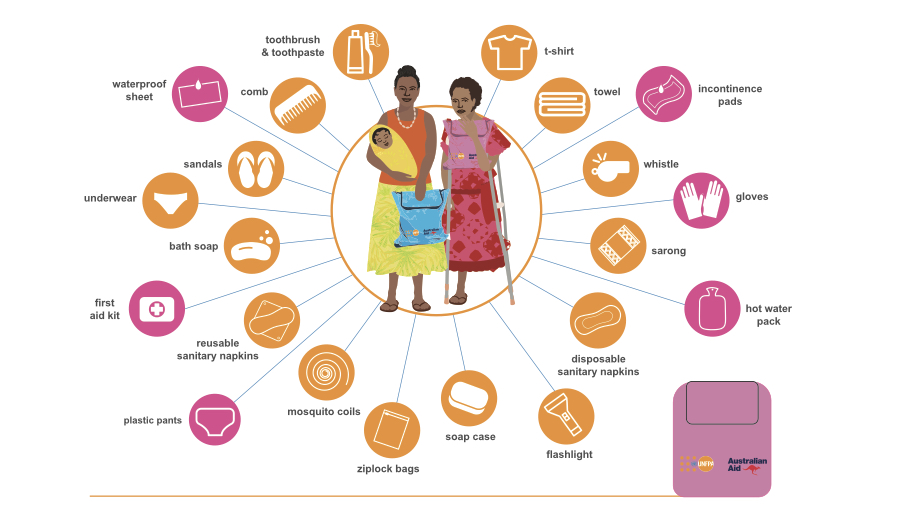
Customised dignity kit for women and girls with disabilities developed by the UNFPA Pacific Sub-Regional Office
“My only hope is that interventions like this can change the way society thinks and can help include us into the mainstream.”
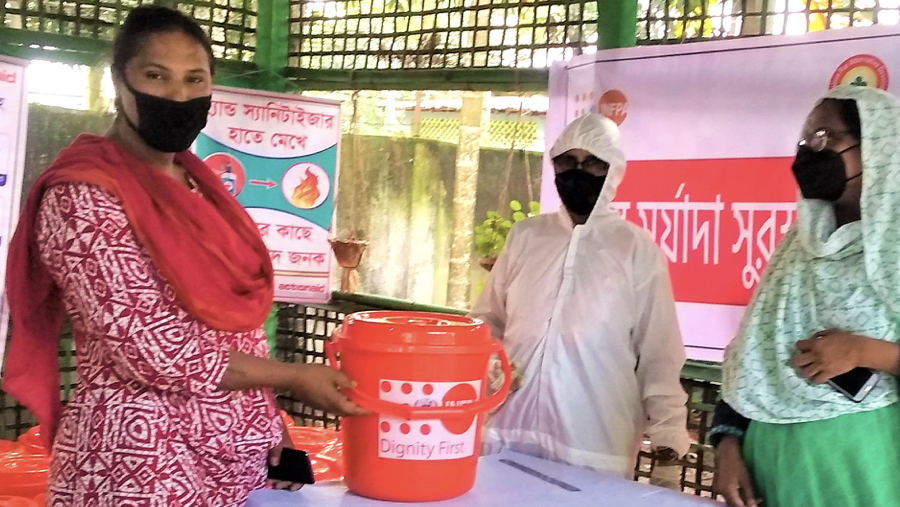
As part of relief efforts in Bangladesh, UNFPA distributed dignity kits to transgender people in three flood-affected districts in 2020. This was the first time dignity kits were specifically designed to meet third gender needs. Kajli, a transgender woman who did not have an income or a proper place to live because of the flooding, received a tailored dignity kit. “My only hope is that interventions like this can change the way society thinks and can help include us into the mainstream,” she said.
“We need to be more inclusive in our policies, programming and planning,” she says. “We need to ensure that it is not only having a person with a disability and their organizations at the table, but we also need to be part of the process from the beginning to the end.”
-Naomi Navoce, Disability Inclusion Advisor in Fiji
RPI PHASE 2 | TRAINING | EMERGENCIES | RESPONSIVE | SYSTEMS | SUPPLIES | IMPACT

